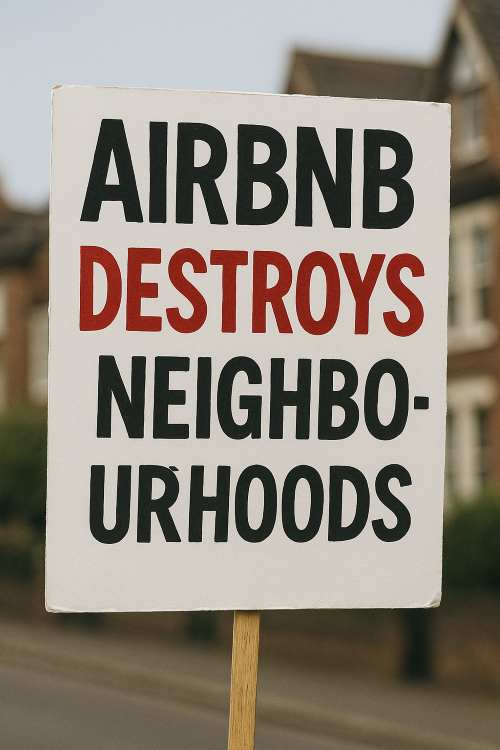Massive ruling triggers global backlash as housing crisis deepens
In a landmark legal decision that is already sending shockwaves through the global housing market, a staggering 65,000 short-term rental properties—mostly listed on Airbnb, have been banned following a court ruling that found the platform in violation of regional housing laws. The case, which unfolded in a major European jurisdiction, has ignited fresh debates worldwide about the impact of short-term rentals on already strained housing supplies. A Global Reckoning for Airbnb?The ruling marks one of the largest crackdowns on Airbnb in the company’s history. It comes amid intensifying criticism that platforms like Airbnb are exacerbating housing shortages by removing properties from the long-term rental and ownership markets in favor of lucrative tourism rentals.
A Global Reckoning for Airbnb?The ruling marks one of the largest crackdowns on Airbnb in the company’s history. It comes amid intensifying criticism that platforms like Airbnb are exacerbating housing shortages by removing properties from the long-term rental and ownership markets in favor of lucrative tourism rentals.
In cities around the world, especially in high-demand urban areas and tourist hotspots, entire neighborhoods have been hollowed out to make room for short-term guests, often to the frustration of locals. The 65,000-property ban may be the tip of the iceberg, with other jurisdictions already eyeing similar legal action.
Australia’s Alarming Numbers
The news is resonating particularly loudly in Australia, where experts estimate that as many as 300,000 homes......yes, 300,000 have been pulled from the general housing pool to serve as short-term rentals for tourists. In cities like Sydney, Melbourne, and Byron Bay, residents have long complained about the difficulty of finding affordable housing while rows of houses remain empty between weekend stays and holiday bookings.The growing backlash is no longer just a local issue. Australian lawmakers, along with counterparts in Canada, the U.S., and parts of Europe, are now facing mounting pressure to impose stricter regulations, or follow suit with outright bans.Tourism vs. Housing: A Shifting Balance
Supporters of the ban argue that returning homes to the long-term rental market is critical to solving the housing crisis, especially for key workers and young families who are increasingly priced out of their own communities.
On the other hand, Airbnb and property owners argue that short-term rentals offer vital income for individuals and boost local tourism economies—particularly in post-pandemic recovery phases. But as rental affordability continues to plummet and homelessness spikes in many urban centers, the argument for prioritizing tourism is wearing thin.
What’s Next?
The court’s decision may well become a precedent. Legal experts predict it could open the floodgates to similar challenges around the world, especially where governments have already been grappling with how to legislate an industry that has grown faster than the policies meant to regulate it.
For now, Airbnb says it will appeal the ruling. But for residents living through the worst housing crunch in decades, the question remains: Is it finally time to reclaim homes for people, not profits?
